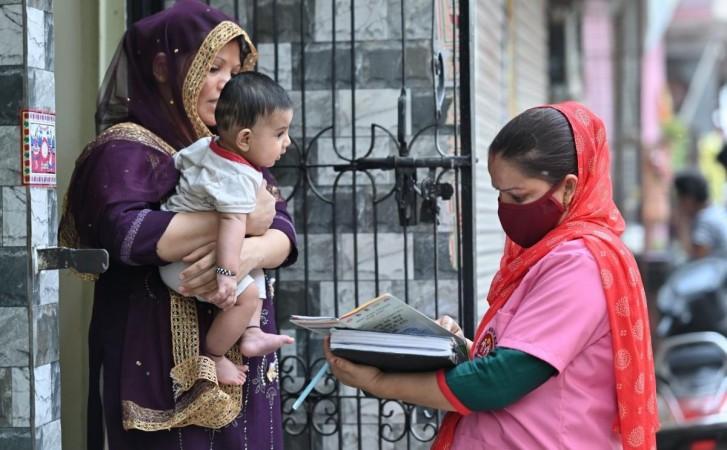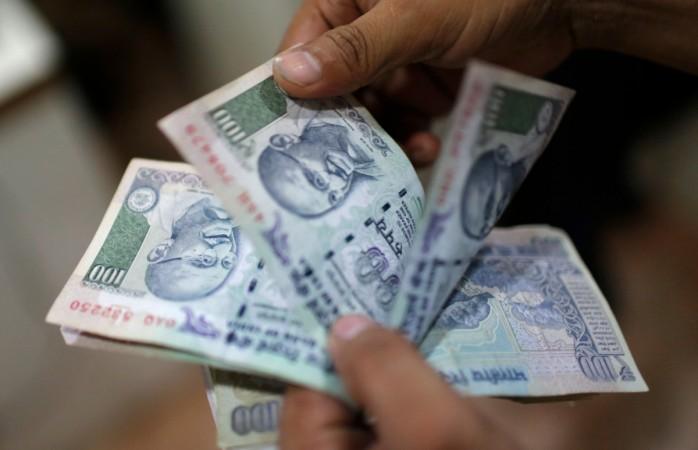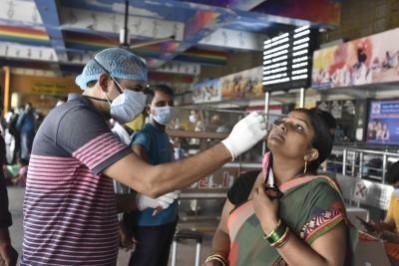The World Health Organization (WHO) honoured India's more than one million Accredited Social Health Activists (ASHA) for connecting people with healthcare services. Termed as the "backbone of India's healthcare services", ASHA workers were among the six recipients of Global Health Leaders Award at the ongoing 75th World Health Assembly.
ASHAs "play a critical role in India's primary healthcare system, including during the Covid-19 pandemic, providing essential health services to millions of people. In Hindi, ASHA means hope. And that is exactly what the ASHAs deliver", the WHO said in a statement.

This global accreditation even delighted PM Narendra Modi, who said: "They are at the forefront of ensuring a healthy India. Their dedication and determination are admirable."
The coveted recognition drew applause from across India, but is it enough?
ASHAs and their struggles: Ground reality
ASHAs are trained female volunteers who take healthcare services to rural, marginalised, and hard-to-reach communities across India. They provide maternal care and immunisation for children; community healthcare; treatment for hypertension and tuberculosis; and services for nutrition, sanitation, and healthy living.
ASHAs are the foot soldiers of India's public health services. Their unparalleled contribution during the COVID-19 pandemic helped bring awareness about the deadly virus to rural India and save millions of lives. While their services were recognised by WHO, the recognition hasn't impressed the ASHA workers.
There are nine lakh ASHA workers across India and each of these workers has worked long hours and with paltry pay, putting their survival at risk. Speaking on the challenges they faced on the ground and the salary they got for their work was no match.

"It's sad and funny at the same time. Today, I'm counted among the million Asha workers who received this honour... and a few months back, I was abused, slapped, kicked and suspended from work for demanding the Rs 500 promised to us for working on Covid duty," 45-year-old ASHA worker from Ambala, Anju Bala, was quoted as saying. Bala had been an ASHA worker under the National Health Mission (NHM) for over a decade, TOI reported. Besides her, over 22,000 ASHA workers in Haryana also complained of high workload, low pay and nonpayment of incentives. More than the award and recognitions, they demand better treatment and adequate pay.
"Treat us as equals and pay us adequately, that will be the biggest award for us," Bala added.
Similarly, ASHA workers in Nuh worked during the COVID pandemic, allaying the fears about vaccines, and they were paid a fixed component of Rs 4,000 with varying incentives ranging from Rs 5,000 and Rs 8,000. Their average monthly salary came up to just Rs 10,000.
Their protests and memorandums fell on deaf ears.
"When we went to press for our demands, we were beaten up, our numbers were traced and some of us were put under house arrest. When they have to pay us, they say we aren't regular employees and only volunteers, but when they have to choke our voices, they invoke ESMA," Surekha, general secretary of the union, told TOI.
Another ASHA worker Neeta Awanghade in Atali village in Maharashtra's Satara district, who worked during the pandemic by identifying COVID symptoms and advising on isolation and then moved on to educating about vaccination, shared her plight of low wage. After working 12-14 hours a day during the second wave of COVID, she drew a salary of just Rs 5,000. Naturally, the WHO's honour wouldn't bring much joy to her.

"I got a WhatsApp message about the award. I am very happy and proud of what I have achieved in the last two years. But awards don't pay for food. Awards cannot make sure that my children get good education. I want my ASHA sisters and me to be paid for the work we do. That will make us happier than any award," Awanghade toldThe Quint.
Kavita Singh, a secretariat member of the Scheme Workers Federation of India, who dedicated her service for last 10 years in Delhi, remarked that awards don't fill stomachs.
"The award is a matter of pride for us and we are very thankful. It means that our work has been acknowledged on an international platform. However, this will not fill our stomachs. We have been demanding a regular salary but we are still considered incentive-based volunteer workers," Singh told the paper.
"During COVID, we would conduct 50 surveys in containment zones, for which we would get paid Rs 500 per day (Rs 10 per house). Similarly, for home isolation, we would be paid Rs 100 per patient. The tasks would include getting them tested, and delivering medicines, and oximeters. When nobody else was stepping out of their homes during the pandemic, we were the only people out there," she added.









!['Had denied Housefull franchise as they wanted me to wear a bikini': Tia Bajpai on turning down bold scripts [Exclusive]](https://data1.ibtimes.co.in/en/full/806605/had-denied-housefull-franchise-they-wanted-me-wear-bikini-tia-bajpai-turning-down-bold.png?w=220&h=138)



